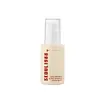What's inside
What's inside
 Key Ingredients
Key Ingredients

 Benefits
Benefits

 Concerns
Concerns

 Ingredients Side-by-side
Ingredients Side-by-side

Panax Ginseng Root Extract
EmollientWater
Skin ConditioningGlycerin
HumectantDipropylene Glycol
HumectantCaprylic/Capric Triglyceride
Masking1,2-Hexanediol
Skin ConditioningNiacinamide
SmoothingButylene Glycol
HumectantMethyl Gluceth-20
HumectantPolyglyceryl-3 Methylglucose Distearate
EmulsifyingHydrogenated Lecithin
EmulsifyingSorbitan Stearate
EmulsifyingAmmonium Acryloyldimethyltaurate/Vp Copolymer
Macadamia Ternifolia Seed Oil
EmollientCarbomer
Emulsion StabilisingTromethamine
BufferingBetaine
HumectantTocopherol
AntioxidantEthylhexylglycerin
Skin ConditioningHelianthus Annuus Seed Oil
EmollientAdenosine
Skin ConditioningDisodium EDTA
Cholesterol
EmollientPolyglyceryl-10 Oleate
Skin ConditioningBrassica Campestris Sterols
EmollientPhytosteryl/Behenyl/Octyldodecyl Lauroyl Glutamate
Skin ConditioningRetinal
Skin ConditioningSilica
AbrasiveAluminum/Magnesium Hydroxide Stearate
Emulsion StabilisingPotassium Cetyl Phosphate
EmulsifyingPentaerythrityl Tetra-Di-T-Butyl Hydroxyhydrocinnamate
AntioxidantArctium Lappa Root Extract
Skin ConditioningCnidium Officinale Root Extract
Skin ConditioningDioscorea Japonica Root Extract
Skin ConditioningPaeonia Suffruticosa Root Extract
Skin ProtectingRehmannia Chinensis Root Extract
Skin Conditioning3-O-Ethyl Ascorbic Acid
Skin ConditioningBakuchiol
AntimicrobialSh-Oligopeptide-1
Skin ConditioningSh-Oligopeptide-2
Skin ConditioningSh-Polypeptide-1
Skin ConditioningPanax Ginseng Root Extract, Water, Glycerin, Dipropylene Glycol, Caprylic/Capric Triglyceride, 1,2-Hexanediol, Niacinamide, Butylene Glycol, Methyl Gluceth-20, Polyglyceryl-3 Methylglucose Distearate, Hydrogenated Lecithin, Sorbitan Stearate, Ammonium Acryloyldimethyltaurate/Vp Copolymer, Macadamia Ternifolia Seed Oil, Carbomer, Tromethamine, Betaine, Tocopherol, Ethylhexylglycerin, Helianthus Annuus Seed Oil, Adenosine, Disodium EDTA, Cholesterol, Polyglyceryl-10 Oleate, Brassica Campestris Sterols, Phytosteryl/Behenyl/Octyldodecyl Lauroyl Glutamate, Retinal, Silica, Aluminum/Magnesium Hydroxide Stearate, Potassium Cetyl Phosphate, Pentaerythrityl Tetra-Di-T-Butyl Hydroxyhydrocinnamate, Arctium Lappa Root Extract, Cnidium Officinale Root Extract, Dioscorea Japonica Root Extract, Paeonia Suffruticosa Root Extract, Rehmannia Chinensis Root Extract, 3-O-Ethyl Ascorbic Acid, Bakuchiol, Sh-Oligopeptide-1, Sh-Oligopeptide-2, Sh-Polypeptide-1
Water
Skin ConditioningPropanediol
SolventDimethicone
EmollientCetearyl Ethylhexanoate
EmollientAlcohol Denat.
AntimicrobialDipropylene Glycol
HumectantAmmonium Polyacryloyldimethyl Taurate
Emulsion StabilisingHydrogenated Lecithin
EmulsifyingAllyl Methacrylates Crosspolymer
Emulsion StabilisingPhenoxyethanol
PreservativeCaprylyl Glycol
EmollientIsopropyl Myristate
EmollientRetinol
Skin ConditioningPolysorbate 20
EmulsifyingSodium Citrate
BufferingBoswellia Serrata Resin Extract
SmoothingDimethiconol
EmollientTrisodium Ethylenediamine Disuccinate
Bisabolol
MaskingCitric Acid
BufferingBHT
AntioxidantPropyl Gallate
AntioxidantWater, Propanediol, Dimethicone, Cetearyl Ethylhexanoate, Alcohol Denat., Dipropylene Glycol, Ammonium Polyacryloyldimethyl Taurate, Hydrogenated Lecithin, Allyl Methacrylates Crosspolymer, Phenoxyethanol, Caprylyl Glycol, Isopropyl Myristate, Retinol, Polysorbate 20, Sodium Citrate, Boswellia Serrata Resin Extract, Dimethiconol, Trisodium Ethylenediamine Disuccinate, Bisabolol, Citric Acid, BHT, Propyl Gallate
 Reviews
Reviews

Ingredients Explained
These ingredients are found in both products.
Ingredients higher up in an ingredient list are typically present in a larger amount.
Dipropylene Glycol is a synthetically created humectant, stabilizer, and solvent.
This ingredient helps:
Dipropylene glycol is technically an alcohol, but it belongs to the glycol family (often considered part of the ‘good’ alcohols). This means it is hydrating and gentle on skin unlike drying solvent alcohols like denatured alcohol.
As a masking agent, Dipropylene Glycol can be used to cover the smell of other ingredients. However, it does not have a scent.
Studies show Dipropylene Glycol is considered safe to use in skincare.
Learn more about Dipropylene GlycolHydrogenated Lecithin is created from the hydrogenation of lecithin (a group of phospholipids). Hydrogenation is a chemical reaction between hydrogen and another element.
This ingredient is an emollient and emulsifier. As an emollient, it helps soften skin by trapping moisture within. As an emulsifier, it prevents oil and water ingredients from separating.
Water. It's the most common cosmetic ingredient of all. You'll usually see it at the top of ingredient lists, meaning that it makes up the largest part of the product.
So why is it so popular? Water most often acts as a solvent - this means that it helps dissolve other ingredients into the formulation.
You'll also recognize water as that liquid we all need to stay alive. If you see this, drink a glass of water. Stay hydrated!
Learn more about Water